Talks
Time zone: CET (Rome, Berlin)
Session reserved for schools in collab with Digital Campus CSI
What’s Digital Collage? The Digital Collage (La Fresque du Numérique) is a collaborative and fun 3-hour workshop, the aim of which is to raise awareness and train participants on environmental issues related to digital.Through an engaging and stimulating activity, participants identify concrete actions to improve the impact on the planet and people, and have the opportunity to discuss both the positive aspects and the risks and impacts of the digital world, too often considered immaterial.
How does it work? Digital Collage is based on scientific data and collective intelligence. Participants, in groups of 4-8 people, “play” with cards that represent the life cycle of digital devices and the network that powers and supports the Internet. This pedagogical method allows them to understand the environmental and social impacts of their digital choices, alternating phases of reflection, discussion and creativity to ensure the understanding and memorization of key concepts.
The Digital Collage was developed in France with the same pedagogical model as Climate Fresk, the most widespread climate change laboratory in the world with over two million participants.

Moderator: Rosa Meo
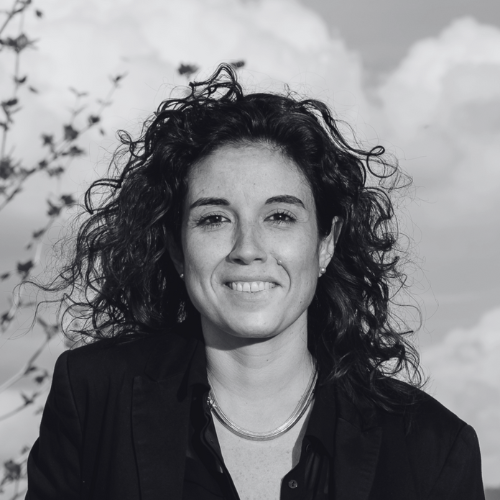



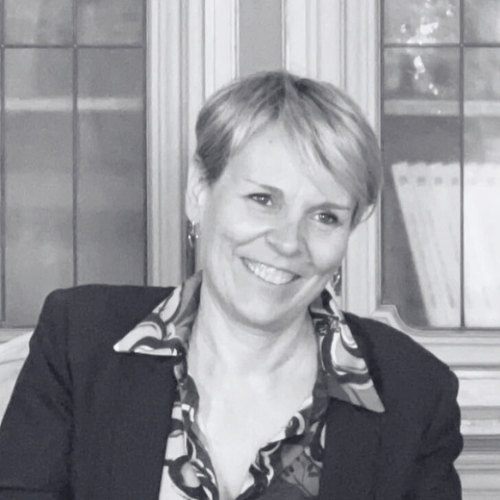
Moderator: Rosa Meo
According to the latest 2025 Global Gender Gap report from the World Economic Forum, we are 123 years away from achieving gender equality. But the risk is that this deadline will move significantly further away, rather than closer, if the world of AI continues not only to reproduce gender stereotypes, but to multiply them, particularly with generative AI. This says a lot about how strategic it is to have mixed AI working groups, in which gender differences are represented, together with other differences, such as those related to ethnicity.
However, with respect to gender, we have a gap to fill, namely the female presence in STEM disciplines, and in particular in ICT, where the percentage of female graduates is stuck at around 16%. Widespread awareness-raising on these issues can make the difference in an approach that is not just defensive or alarmist, but uses the opportunities offered by AI to make stereotypes visible and counter them.

Expert in digital, social innovation, gender policies. Many years of experience in the world of IT work. Long experience as a public administrator, up to being Piedmont regional councilor from 2014 to 2019. Since 2020, researcher in computer science at the University of Turin. Member of the scientific committee of CIRSDe – Interdisciplinary Center for Research and Studies on Women and Gender. Founding member and board member UN Women Italy Ambassador Women 4.0 and Women in AI Italy.
For the first time in the history of AI, more than 100 international scientists led by Turing Prize winner Yoshua Bengio have produced a global report on the emerging risks of artificial intelligence. This document represents the first systematic attempt to map the challenges that await us: from algorithmic biases to mass disinformation, from loss of control over autonomous systems to geopolitical implications. The intervention will not limit itself to illustrating the identified risks, but will explore the concrete solutions proposed by the scientific community, including computational governance and international agreements to regulate the development of AI, considering the complexities of geopolitical dynamics and economic interests. An opportunity to understand where we are today and what tools we have to guide AI towards a safer and fairer future.
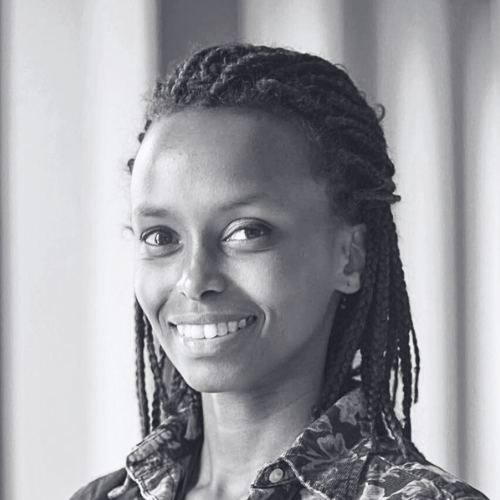
Giulia holds a master’s degree in law (University of Milan Bicocca) and an M.Sc. in software development (IT University of Copenhagen). After working in computer security and software development, he turned towards scientific dissemination on the subject of AI security. He currently carries out the AgorAI project (agoraimag.com), which makes these themes accessible through blogs, articles and the podcast “The Great Transition”.
Risks related to AI systems have become a recurring topic in public and academic debates, and the European proposal for the AI Act explicitly adopts a risk-based, tiered approach that associates different levels of regulation with different levels of risk. However, a comprehensive framework for conceptualizing AI-related risks is still lacking. In this presentation, I will focus on the epistemological analysis of AI risks, showing how a multicomponent risk analysis, which distinguishes between the dimensions of danger, exposure and vulnerability, allows us to better understand the sources of AI risks and intervene effectively to mitigate them.
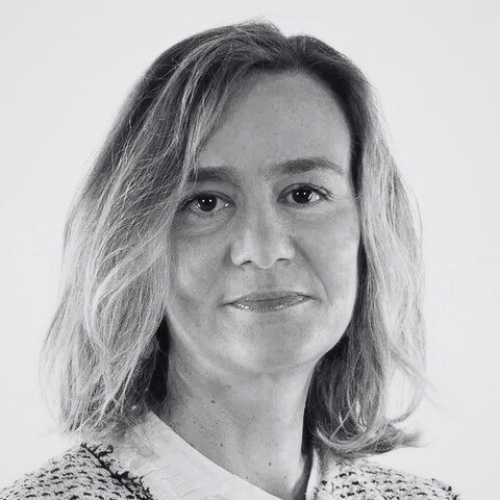
Viola Schiaffonati is professor of logic and philosophy of science at the Department of Electronics, Information and Bioengineering of the Polytechnic of Milan. His research interests lie at the intersection of philosophy of science and technology and computer engineering.
Moderator: Pietro Jarre
When we think about war, which particularly in this period presents us with terrible testimonies, we have in mind a traditional war model, however technologically advanced the weapons and intelligence tools (including AI) used may be. However, for some time now, what is commonly called “hybrid war” has been increasingly spreading, the cornerstones of which are propaganda and disinformation on the Internet, especially by authoritarian regimes, with clear objectives of manipulating public opinion. As users of information, it is necessary on the one hand to support ethical journalism practices (including “participatory journalism” which uses Open Source INTelligence (OSINT) techniques and on the other to understand how to select and diversify sources.

With a degree in physics, in the 1980s I moved from Milan to Canavese, fascinated by the Olivetti experience, where I worked both in the Ivrea headquarters and in the Advanced Technology Center in Cupertino, California.Always interested in the relationship between technology (digital and beyond) and society, in recent years I have dedicated myself to the topic of online information to understand how to orient myself between different models of journalism and more generally of information production.
Which companies in Italy offer products/services that use digital in a responsible/sustainable way? We will find out by talking about the Responsible Digital Consumption Observatory, born from the collaboration between the Consumer Movement and Sloweb. The speech will delve into the principles underlying this initiative, will present some examples of organizations that have become part of it and how to join.
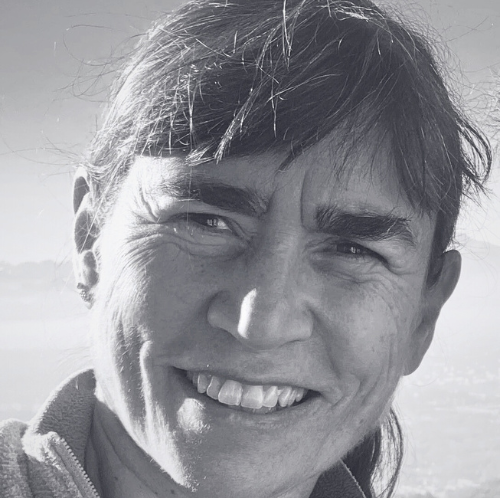
Graduated in Earth Sciences, she ranges from research on climate change to scientific-environmental consultancy and education. For Sloweb, of which he is Vice President of the education sector, he dedicates himself to training people of all ages on the environmental and social impact of digital.
The intervention will focus on a specific experiment regarding generative AI. Preliminary reading of the material is recommended, as the intervention will focus on specific questions and not on the description of the experiment.
Artificial Intelligence is now the global reference for information. According to some sources it will be used by 700 million people by 2030, but today it is estimated that 77% of devices in use host some form of AI. Services are provided thanks to computing architectures concentrated in server farms that use enormous linguistic models. Model training and inference activities present severe ecological challenges and social and cultural risks. The dubious quality of the training questions cast doubt on the factuality of the answers. In contrast to all this, open source language models and new hardware that enhance personal and peripheral computing are becoming increasingly important. Linguistic models built on a voluntary basis also allow for agility, cultural richness and specialization. RAG technology significantly improves factuality and allows innovative models of use, for example in teaching
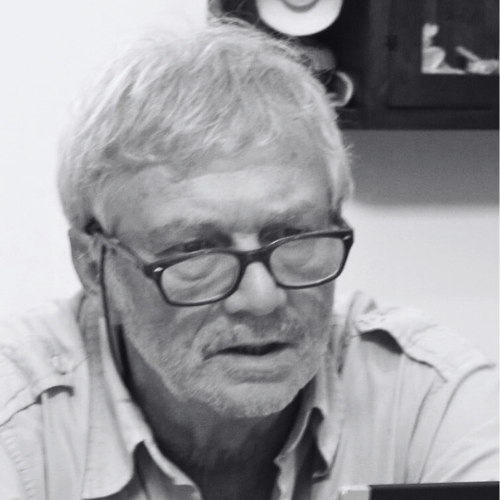
Former industrial manager. Co-founder of Sloweb and of the Digital Ethical Democracy Forum. Freelance ICT consultant. Co-founding partner of Nexture for consultancy in the field of EU research funding. Head of Techonology Scouting lab in Ivrea for Infostrada and Wind. Basic and application software designer and architect in Olivetti, Digital Equipment Corporation, Aeritalia. Product marketing manager at Olivetti. Project Manager of the ALBA airport automation project
140 consortium entities with which it operates as in-house providers: CSI Piemonte is a private entity under public control, operating in the technological innovation sector at the service of public entities for digital transformation.
For this reason, ethics and responsibility must guide all decisions, including those aimed at achieving the best possible balance between the three ESG (Environmental, Social, Governance) dimensions of sustainability.

Graduated in Communication Sciences, over nearly thirty years in the company, she has gained extensive experience of the Consortium’s diverse portfolio: corporate communications, external relations, training, international projects, internal auditing, and 231-190 compliance. Since 2024, she has been committed to sustainability, establishing a more systematic vision and coordinating the numerous initiatives undertaken for the company’s multiple stakeholders.
Moderator: Alfredo Adamo
Digital transformation generates value only if driven by leadership that combines vision and discipline. Three pillars: 1) Data governance: quality, security, privacy-by-design, human control over algorithms, bias auditing, traceability of decisions; 2) Transparency and accountability: clear reporting of ESG results, measurable indicators, consistency between words and deeds, continuous dialogue with stakeholders; 3) ESG integration into processes: objectives in budgets and KPIs, management incentives, responsible supply chains, innovation oriented towards social and environmental impacts. Green IT as a concrete lever: efficient data centers powered by renewables, optimized cloud, “light” software and sites, eco-design of devices, smart working and IoT to reduce consumption. Call to action: leaders are ethical guardians of digital, transforming compliance into competitive advantage and lasting trust.

Carlo Bozzoli is a manager with over 40 years of experience in the Energy & Utilities and ICT sectors. As CIO of Enel and CEO of Enel Global Services, from 2014 to 2024, he led digital transformations and organizational changes. Graduated in Economic Sciences, HBS Alumni is an author and member of the advisory board of the Management Academy for ICT Executives of the Polytechnic of Milan and of the Scientific and Steering Committee of the Foundation for Digital Sustainability. Member of the boards of directors of Doxee and Inwit.
An in-depth look at how green technologies – from the sustainable cloud to the reduction of consumption in data centers – can generate not only environmental benefits, but also a strategic positioning on the market.
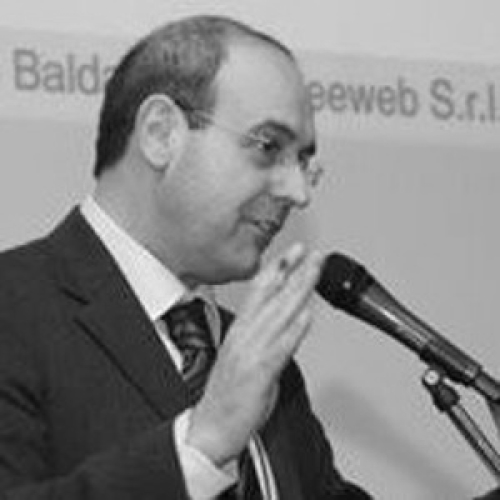
Antonio Baldassarra, with over thirty years of experience in Electronics, Telecommunications and IT, and with a background as an electronic engineer, is the founder of Seeweb, a leading Italian company in data center and cloud computing infrastructure services. He is currently involved as CEO of Seeweb.
Ghost working represents a modern form of labor exploitation in digital capitalism, where millions of invisible workers perform tasks essential to the functioning of artificial intelligence systems. The phenomenon, theorized by Mary Gray and Siddharth Suri, reveals how behind the apparent full automation of AI lies a massive use of precarious and underpaid human labor. Ghost workers perform key tasks such as data labeling, content moderation, data transcription and verification, working across fragmented micro-tasks distributed across digital platforms. The intervention highlights a global geography of exploitation with enormous wage disparities between Global North and South, precarious working conditions characterized by the absence of formal contracts, social protections and constant algorithmic control.
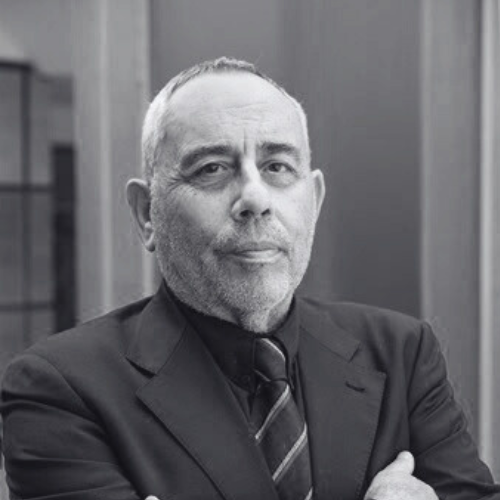
Graduated in Philosophy at Sapienza University (thesis on Marx and algorithms), he worked at Olivetti, Digital and IBM in the IT and banking sector. In recent years he has been dealing with Digital Healthcare and AI. Former teacher of Computer Science at Sapienza University. Author of “The Dictatorship of Artificial Intelligence”. He currently analyzes the ideologies of American technocratic capital. CDTI communications manager and Sloweb member.
1. Operational approach to Green IT: identification of the main levers available to reduce IT’s carbon footprint
2. Experiences in Italy and trends: evaluation of the situation in Italy with implementation cases and comparison with current trends in other countries
3. Green IT & IT4Green: complementarity of the two approaches in addressing the positive and negative externalities of IT
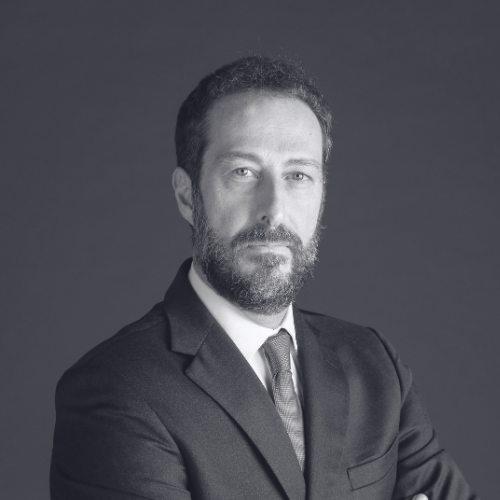
Advisor for companies and start-ups, he collaborates with publishing and academic institutions on issues relating to digital, innovation and sustainability. Author of the book “Green and Digital”. Contract teacher for master’s degrees at the main Italian universities. Thirty years of experience in consultancy, he worked as Sustainability Director in 2024/2025 at Digital 360 and as Executive at IBM until 2020. Member of the Board of Directors of SVS-DAD (non-profit association against violence against women).
The speech will address the progress made by the Italian industry in adopting more sustainable approaches, analyzing in particular the challenges posed by the “Double Transition” and the different speeds between the Member States of the European Union. Obstacles will be explored, such as European hyper-regulation, compliance difficulties for Italian SMEs compared to large global players (i.e. non-proportional horizontal obligations), and the need to overcome individual national strategies that lack a unitary European vision. The objective is to push Europe to identify its own niche of sustainable development, based on reliability and reduced consumption, rather than chasing the great global powers with projects that Europe cannot maintain.
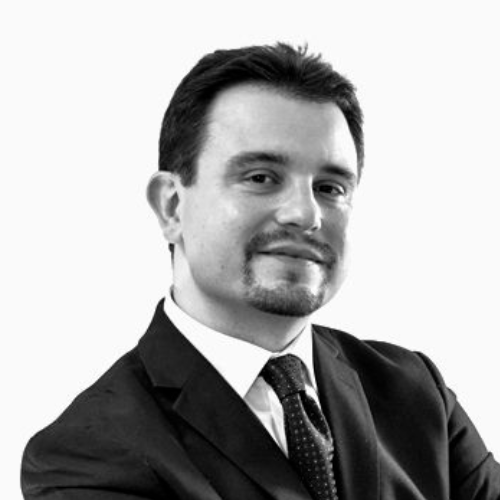
Dario Denni is an independent consultant specialized in institutional and regulatory affairs in Electronic Communications, the Cloud industry and network markets. He is the founder of Europio Consulting, a consultancy company that deals with institutional relationships and opening up competition on the part of new entrant operators.
Moderator: Nicola Bonotto
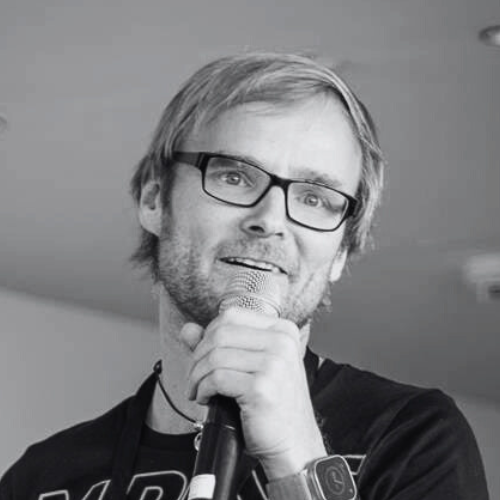
Thorsten is a digital Sustainability Expert, responsible AI Advocate and Sustainable UX Trailblazer. He is the founder of the non-profit initiative and global community SUX Network as well as of the SUX Academy, co-author of the W3C Web Sustainability Guidelines, the host of the SUX Podcast and co-author of the books “User Experience Design und Sustainability” & “Usability for the World: Building better Cities and Communities”
Thorsten is guiding, advising and teaching designers and product-managers as well as design- and product-teams or entire organizations in crafting sustainable, responsible and ethical digital products while using tech and AI in a responsible way.
His passion for the outdoors and mountaineering drives his commitment to making sustainability and responsibility a fundamental aspect of digital world we create and use.
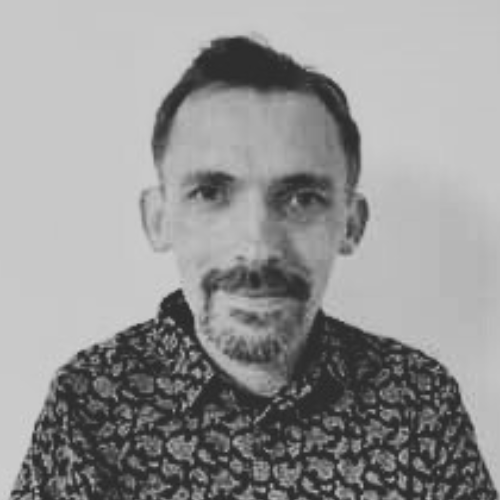
He has been involved in sustainability for a few years now. He contributes to many projects, including most of the existing repositories for best practices. For Greenspector, He audits digital services, trains people and write articles. Also, he complains a lot about carbon tunnel vision and greenwashing.
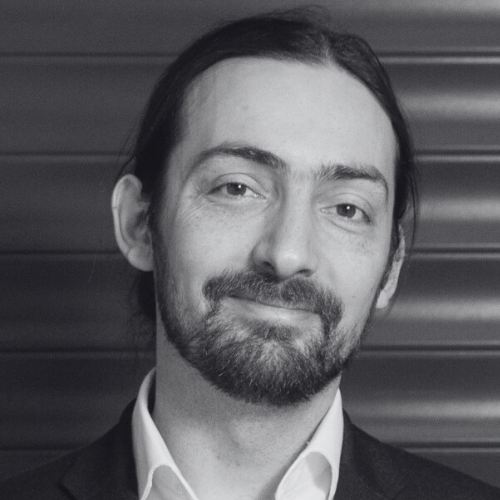
Chris Adams is the Director of Technology and Policy at the Green Web Foundation, a non profit focussed on reaching a fossil free internet by 2030, and has spent the last 15 years as an environmentally focussed tech generalist, working as a user researcher, product manager, developer, sysadmin and UX designer.
He is a contributing editor to the Ars Electronica award winning Branch Magazine, an invited expert at the W3C Sustainable Web Interest Group, the policy chair of the Green Software Foundation, an industry body comprised of non profits and some of the largest names in the tech world, including Microsoft, Thoughtworks, Google, Github and others. He is also the host of the Environment Variables podcast, where he interviews experts in the field of digital sustainability.

Sophie is a tech and sustainability expert with over 13 years of experience scaling tech-enabled solutions to tackle the climate and nature crises. She currently heads up the UK, US and Public Policy teams at the world’s greenest search engine, Ecosia. She previously worked at DLA Piper LLP, the International Chamber of Commerce, the German Marshall Fund of the United States and is a trusted advisor to corporate stakeholders, boards, governments and civil society, focussing on advancing climate and nature resilience, regeneration and responsible tech and AI deployment in local and international forums (UNFCCC, CBD, G/B20, OECD, UK/EU/US).